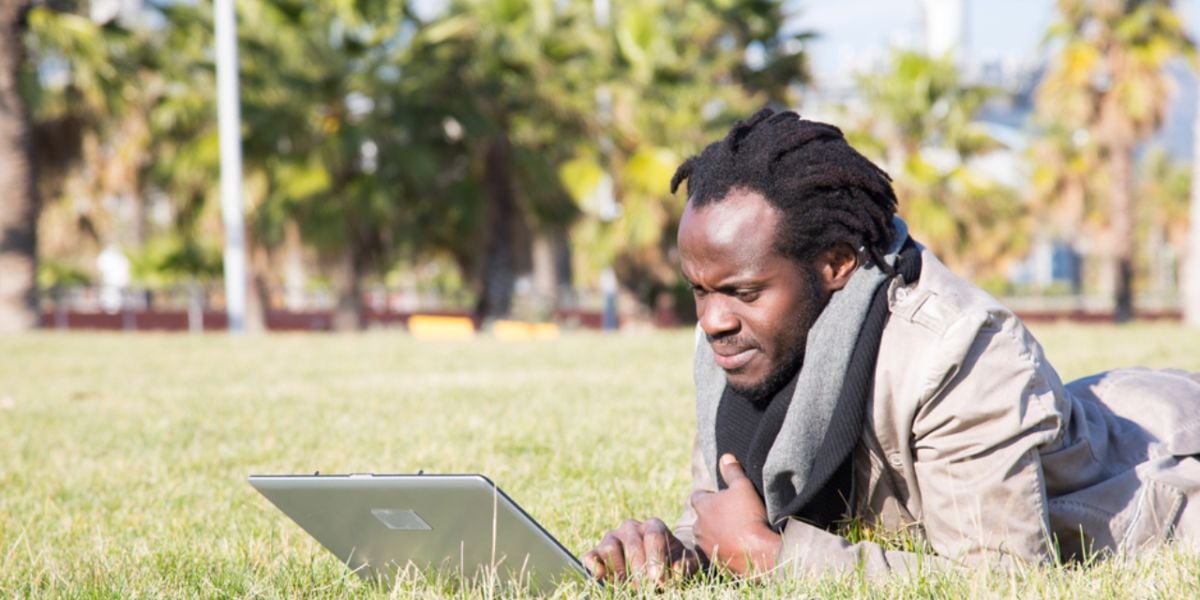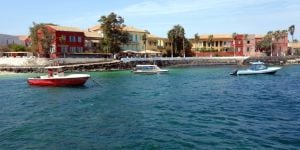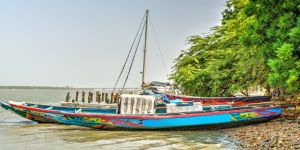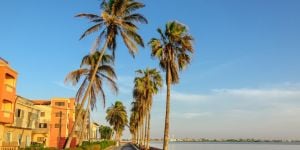
Senegal welcomes international students with open arms. In recent years, the country has seen its higher education system become one of the most advanced in Africa, comparable to many European and American countries. Both public and private universities offer open and specialised courses with the diplomas provided carrying the same weight as many in western nations.
The higher education system in Senegal
In 1957, Cheikh Anta Diop University in Dakar (UCAD) became the first university in Senegal, opening three years before independence. In 1990, a second university - University Gaston-Berger - was established in Saint-Louis. Since the turn of the Millenium, Senegal now boasts 11 public and private universities across the country, including in Thiès, Ziguinchor and Kaolack. In addition, Senegal is home to a large number of ‘Grandes Écoles', mostly found in Dakar, sector-specific graduate training schools - from Agriculture and African studies to Engineering and Journalism - and well-regarded business schools, such as IAM (the African Institute of Management) in Dakar.
Popular universities in Senegal
Cheikh Anta Diop University in Dakar (UCAD)
With 60,000 students, UCAD is the most prominent university in Senegal and offers a wide range of courses. The large campus takes up the size of almost an entire district in the heart of Dakar with all the individual faculty buildings within walking distance of each other.
Often called the University of Dakar, UCAD offers courses in the Sciences, Engineering, Humanities, Finance, Medicine, Accounting and Law. It also provides a large number of foreign study programs and has affiliations with European and US universities. International students who come to UCAD will take introductory Wolof lessons, and French language courses (if required) as courses are taught in French. They also offer the option to study Senegalese and African studies, such as African politics and literature, alongside their course to gain a deeper understanding of the continent.
Gaston Berger University (UGB)
Formerly known as the University of Saint-Louis, UGB is situated 13km from Saint-Louis in the north of Senegal. Given the space of not being in the city, it is very much a campus university with student accommodation provided on campus. As such, many students stay on campus, offering a close-knit feel. The university is affiliated with many research colleges in Saint-Louis and has eight facilities on site:
- Faculty of Applied Science and Technology.
- Faculty of Arts and Human Sciences.
- Faculty of Economics and Management.
- Faculty of Law and Political Science.
- Faculty of Agricultural Sciences Aquaculture and Food Technology.
- Faculty of Economics and Management.
- Faculty of Civilisations, Religions, Arts and Communication.
- Faculty of Education, Training and Sport.
- Faculty of Health Sciences.
IAM (the African Institute of Management)
IAM offers bachelors and masters degrees and also executive education courses. Located in Mermoz, in one of the most distinctive and tallest buildings in Dakar, it is particularly well-regarded for its business school. Here, students can take courses in accounting, marketing, HR management and banking, which will stand them in good stead to enter the world of business.
IAM also offers a language school, a doctorate school and an engineering school while those already working, who want to take courses to enhance their career prospects can go here to take MBAs in subjects like management and fiscal governance.
Admission to universities in Senegal
Universities and postgraduate institutions each have their own admission requirements, so it is best to visit their website to understand what is needed to become a student at your chosen institution. In general, though, university administration will request a transcript of your baccalaureate results as well as documents showing your identity and desired course. Once you have submitted all related documents, the university will then determine whether you are admissible. For public universities, the number of international admissions will be determined by the available spaces on each course.
Registration in Senegalese universities
If your admission has been confirmed, you will have to register in person at the Senegalese university you have chosen. This step is obligatory and has to be completed within the mandated deadlines. For example, at UCAD, registration is open between 1 September and 1 October, and every student must register each year.
During registration, you will pay fees to the institutions, typically around 150,000 CFA for universities and 300,000 for the postgraduate schools or Grandes Écoles.
For international students registering at university, the following documents are required:
- The original of your bachelor's degree or a recognised equivalent.
- A handwritten application addressed to the university dean, specifying the option chosen.
- A certified photocopy of your results transcripts (up to Baccalaureate).
- A certified photocopy of the Bachelor certificate.
- An original birth certificate (issued less than 3 months earlier).
- A nationality certificate.
- A cover letter from your embassy or consulate.
Important:
Candidates wishing to study medicine have to be at least 18 years old, while those wanting to study dentistry or pharmacy have to be 22 years old or older. They also need to have scored well in mathematics, natural sciences and physical sciences to be selected.
Visa in Senegal
Senegal has signed a reciprocal agreement with countries where its nationals are not required to obtain a visa for Senegal. Unless you come from one of these countries, you will have to produce a passport as well as a biometric visa.
Student accommodation in Senegal
If you are looking for student accommodation in Senegal, you can opt for the housing units provided by some public and private universities and other educational institutions. Rent costs vary according to the city and university.
Useful links:
Ministry of Higher Education and Research
CIEE
Study Abroad
Sencampus
UCAD
We do our best to provide accurate and up to date information. However, if you have noticed any inaccuracies in this article, please let us know in the comments section below.








